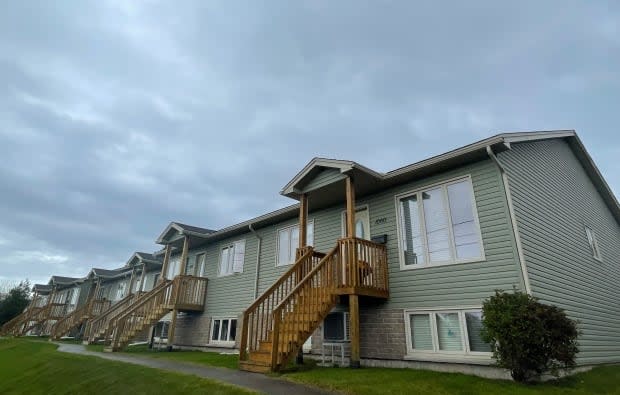Major property assessment increase reaches Saint John hotel 5 years after renovations finish

A renovated Saint John hotel that received a substantial property assessment increase more than five years after it was upgraded is another example of stagnant valuations costing the New Brunswick city critical tax revenue, according to mayor Donna Reardon.
"There's a lot of money lost if it takes five, six, seven years for your building to come up to an accurate assessment," said Reardon in an interview.
"It's hard to grow if you're not getting the tax base reflected accurately."
Last week, Service New Brunswick issued a $6.1 million property assessment on the Holiday Inn Express and Suites hotel in the city's north end for 2023. That's up from just $1.9 million in 2022.

The 217 per cent jump is the largest recorded in New Brunswick this year for a building of that size not under construction.
The change will generate an extra $119,000 per year in tax revenue for Saint John.
Reardon is happy about that but also has questions.
If much of the change in the hotel's value is related to extensive renovations done on the property back in 2016 and 2017, she believes it should have shown up in its tax assessment, and city revenues, long before 2023.

Service New Brunswick won't discuss details of how it assessed the hotel property over the past several years citing "confidentiality" but Reardon said the agency had all the information it needed back in 2017 to know the building had increased in value.
"To do all those renovations, they would have required permits," said Reardon
"They would be able to keep track of the permits."
Agency looked at valuation after sale
It wasn't until the hotel sold to new owners for $9.24 million in 2021, five times its Service New Brunswick assessment at the time, that the agency began investigating the accuracy of its own valuation.
It eventually discovered it to be $4 million too low.
WATCH | The hotel where renovations brought a 200% hike in the assessment — eventually:
That is a significant gap and potentially expensive for the city, especially if the assessment had been too low for an extended period
Every $1 million a commercial building is under-assessed by Service New Brunswick costs Saint John, depending on fluctuating tax rates, about $26,000 per year in lost tax revenue.
Morgan Lanigan is a vocal critic of Service New Brunswick's assessment work in Saint John and believes stagnant valuations, like the one on the hotel, are common throughout the city.
In October, 40 Saint John houses valued above $200,000 received no increases at all in their 2023 assessments.
Neither Moncton nor Fredericton saw a single house of that value that didn't have an assessment increase.

Included in that group was an entire street of seven oceanside homes in west Saint John that haven't been touched by an assessment increase for three straight years. That's despite record real estate prices and sales forcing residential tax valuations up all over New Brunswick.
"These aren't rare by any stretch of the imagination," said Lanigan.
He advocates allowing New Brunswick municipalities to run their own assessment systems, like in Alberta and Saskatchewan, since property taxes are significantly more important to local governments than the province.

"If you miss out on seven years of revenue that should be double, that's penalizing the municipalities," said Lanigan. "I think decentralization of that process would bring a lot more clarity and urgency to the issue."
Reardon said she has had meetings with Service New Brunswick to express her concerns about how properties in the city are assessed, particularly large commercial and industrial properties, and has no plans to drop the issue soon.
"There's lots of buildings out there in Saint John that would fit into this category of being under-assessed," she said. "So we are still hammering that."


